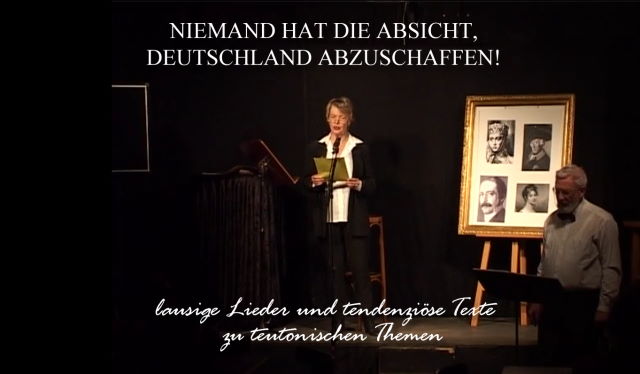I. Under the banner of globalisation the anti-national economy of free trade has, since the end of the Soviet bloc of power, globally been triumphant over the old national economies of Western Europe, as well as over the “self-contained trading states” (Fichte, 1800) of Eastern Europe, which have all been degraded to mere locations of capital and to segments of the global single market. The result of this is the hoarding of wealth for the few, and the increase in unemployment, lowering of wages and cuts in social services for the many. Since 1989 Marx’s and Engels’s theory of immiseration has found its greatest practical proof. Capitalism’s tendency to immiseration always asserts itself when the market is not only declared, but truly made into the criterion and final arbitration for all forms of economic action. The only theorem of free trade is that each commodity is to be bought customs-free at the location where it is currently cheapest. On the moral plane this theorem roughly corresponds to the maxim in life of always taking the easiest path, and always choosing the greatest bargain of the moment. The intellectual level of the doctrine of free trade is that of the calculation of a milkmaid, who sees only the most superficial boundaries of the economy and equates them with her purchase. Morally, intellectually and economically the doctrine of free trade leads to the ruin of all who follow it and do not themselves belong to the absolute strongest of the global market. That, however, is at least 90 percent of all economic subjects.
II. Under the heading of globalisation, free trade has reached its absolutism – the final stage of every historical development. Its economic model of thought knows only two postulates: the individual and humanity. Both are the unpolitical ends of the political economy. For if there are only individuals on the one hand and humanity on the other, then everybody is either subject of one and the same society, and as such Hobbes’s condition of natural justice will have been reached – i.e. the individual is supreme but also poor, miserable and tremulous, for he has to completely fend for himself – or, all live in the same bourgeois society, which then enforces the world-state as its lord, who would no longer need to fear a relativisation with regard to foreign affairs, and who would degenerate into a tyranny of pure social technology with regard to domestic affairs – indeed without an economy of central administration, but instead, with an undamped rule of laws and their derivatives, which according to their nature, are unpolitical, impersonal, and without Right. Only national economies are political economies. The delusion of the unpolitical economy of free trade ought to be just as obvious as the destructive parasitism of those, who are currently benefiting from the absolutism of free trade, i.e. Globalism.
III. Free trade is an economic test of strength in which the stronger imposes his will upon the weaker, ousts him from the battlefield of the market, and finally destroys his livelihood, just as war is a military test of strength. Free trade is economic war. Global free trade is global economic war, which only sovereign nations can end by means of protective duty.
IV. The propaganda and enforcement of free trade is the ideal economic-political weapon of attack for the economic giant, who has himself grown great and become inviolable through protectionism. The national economies need to be just as diverse as are the nations to which they are to be fitted. Weak nations first need to grow to such political strength that they can don and wear the armour of protectionism. In order to be able to play their main trump – the intelligence and multifariousness of their productions, down to the ability of autarchy – the national economies of all European Peoples need to regain their independence. The American economy, however, strives for rule and tries to siphon off European state-of-the-art technologies, as well as Europe’s first-rate professionals. Only the sovereign wills of the free nations can hinder the dispersion of their economic professionals throughout the whole world, and can focus them to do the work of the prevailing self-will of the nation.
V. Only national economies are political economies. Populations, capital and technologies are in themselves pre-political; it is their nature to distribute themselves evenly over the globe, if they are not held back. They go wherever they can exert themselves and where their exertion is worthwhile, and in this natural condition they fulfil the ideal of free trade, which is the demise of every statehood and the death of the nations. As in politics, so too, in economics: the ruling awareness is the awareness of the rulers. Thus it is they who benefit from the doctrine of free trade. The fact that the victims of global free trade, the nations and their states, are currently unable to imagine an alternative economic model, is a precise expression of the fact, that they are subjected to the rulers. The main fault of the primitivisation of economic thinking by free trade lies in the reversal of the hierarchy of superordinated domestic economy and subordinated market economy. When priority is given to market economy, this necessarily leads to crises of the global market economy, as from 1929 to 1933 and to the even more dire global market crisis of today, which can only be surmounted by the renewed subjection of the markets under the domestic economies of the Peoples. – The anti-capitalist revolution of the Peoples will make a second attempt, and this time it will definitely triumph!











